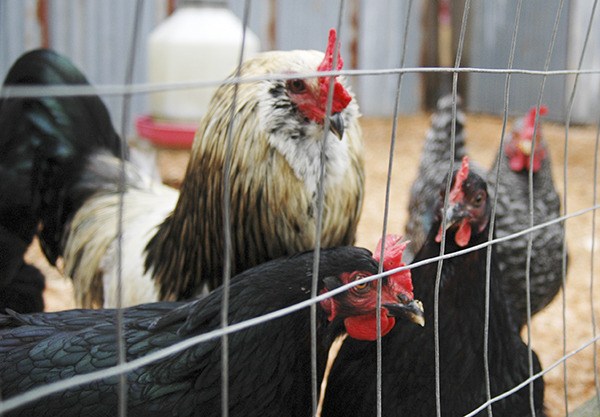All tests from nearby domestic birds came back negative for avian influenza (bird flu), but the quarantine managed by officials with the Washington State Department of Agriculture is to remain in place.
The 10-kilometer quarantine zone encompassing 92 Cosmos Lane in Agnew went into action on Jan. 20 after 118 birds from a flock of mixed poultry were euthanized by U.S. Department of Agriculture officials in response to an avian influenza outbreak. The quarantine could last up to 240 days, but a similar WSDA-managed quarantine in Benton County was removed within 21 days.
However, Hector Castro, WSDA communications director, warns every quarantine is different depending on the circumstances.
“The teams are done testing in Clallam County, but we’re (USDA and WSDA officials) still interested if any birds are showing signs of illness or dying,” Castro said.
As long as the quarantine remains, it prohibits the movement of poultry and poultry products within, in or out of the zone unless a special permit is provided.
Additional cases of the virus have yet to occur in Clallam County, but two new outbreaks were confirmed in Okanogan County on Jan. 27 and Jan. 31. As many as 40 pheasants and 12 turkeys died from a flock of game birds consisting of about 5,000 birds in Riverside, and the second infected flock in Oroville consists of about 100 birds and mixed poultry, with at least half already succumbing to the disease.
“We now have three quarantines in the state,” Castro said. “I think an unusual thing about our response is it has taken us all over the state because of its (the virus’) connection with waterfowl.”
Waterfowl seem to be the primary means of transportation of avian flu, according to Alan Huddleston, spokesman for USDA. Because the number of migrating waterfowl increases within the state during the winter months, officials expect as spring approaches the potential for domestic flocks to be exposed to potentially infected waterfowl will decrease.
Although Castro explained both the state and federal Department of Agriculture agencies have sources, like WSDA’s Avian Health Program, they can draw funds from to support the response efforts, with limited staff and state veterinarians on hand, “it’s definitely stretching resources,” he said.
USDA and WSDA officials visited 1,039 premises within Clallam County and took samples from birds at 32 locations that all came back negative for the virus, but WSDA officials still advise commercial poultry growers and backyard flock owners continue with biosecurity measures, including limiting the contact between domestic and wild birds, especially waterfowl.
Three strains of avian influenza have been detected within the state, including H5N2, H5N8 and H5N1, but no cases within the United States have been linked to human illness.
Deaths or illness among domestic birds should be reported to the WSDA Avian Health Program, at 800-606-3056. For wild birds, contact the Washington State Department of Fish and Wildlife at 800-606-8768.


